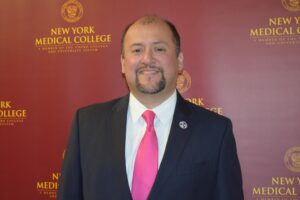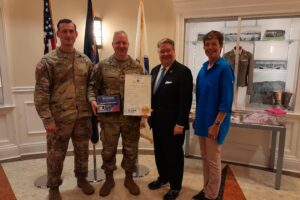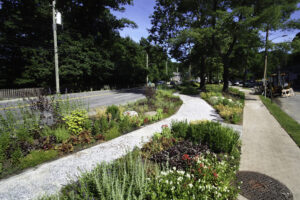
September is National Preparedness Month and, in light of the Covid-19 pandemic and recent natural disasters throughout the country, its importance cannot be stressed enough.
The 2021 theme for National Preparedness Month, sponsored by the Federal Emergency Management Agency, is “Prepare to Protect. Preparing for disasters is protecting everyone you love.” Recent events such as the Covid -19 pandemic, wildfires, heat waves, hurricanes, and floods, have shown that it is wise to always be prepared because a disaster can occur anywhere at any time. Disasters are not limited to normal business hours, so we need to do our part to always be ready and have a plan—because help may not be immediately available.
So, what are some things that you can do to be better prepared? You can start by being informed and aware of the specific hazards that may surround you. Families should have an emergency plan, as well as an emergency supply kit for home or a “to-go” bag in case an evacuation is necessary. Finally, you can get more involved in your community so you can help others during those difficult times because no one knows your community better than YOU.
Here is a brief list of resources and websites which can be helpful and guide you to be better informed and prepared:
- 1- Community Emergency Response Team (CERT) – This program focuses on how citizens can better inform themselves and be more prepared for emergencies. For more information, visit: ny.gov/community-emergency-response-team-cert
- Citizen Corps – Developed after the September 11th attacks, this program focuses on promoting community involvement to be better prepared. For more information, visit: ny.gov/citizen-corps
- gov – A comprehensive website with a series of tips on community education on how to mitigate, prepare, respond, and recover, from disasters. For more information, visit: www.ready.gov
- New York State Division of Homeland Security and Emergency Services (NYS DHSES)- This office coordinates and provides a wide variety of services to response agencies and members of the public in New York State. For more information, visit: dhses.ny.gov
- Federal Emergency Management Agency (FEMA) – This is the lead agency responsible for the coordination of response and aid to the public before, during and after, a disaster. Every state has a local office. For more information, visit: fema.gov/states/new-york
- Westchester County Office of Emergency Management (OEM) – This office coordinates emergency requests and responses for all municipalities in Westchester. For more information, please visit: westchestergov.com/divisions/office-of-emergency-management
STOP THE BLEED campaign– This global campaign aims to train laypersons in steps to take to stop a life-threatening bleed until professional help arrives. New York Medical College (NYMC) offers free STOP THE BLEED workshops throughout the year. The workshop is offered on the NYMC Valhalla campus or can be conducted in your local community. For more information, please visit: www.stopthebleed.org/
Want to become an asset in emergency management? As part of ongoing collaboration and commitment with our community partners, NYMC’s Center for Disaster Medicine (CDM) offers an Advanced Certificate in Emergency Management through the NYMC School of Health Sciences and Practice (SHSP) to increase knowledge and awareness in this field. For more information or questions on how to be better prepared for an emergency, please contact CDM at disaster_medicine@nymc.edu.
George W. Contreras, DrPH(c), M.E.P., M.P.H., M.S., CEM, EMTP, FACEM, is the assistant director of the Center for Disaster Medicine, assistant professor in the Institute of Public Health and assistant director of the Advanced Certificate in Emergency Management at New York Medical College, where he focuses on preparing all sectors of health care, public safety agencies and the community residents. A New York City paramedic, he possesses over thirty years of experience in emergency medical services, public health, higher education, as well as emergency and disaster management and humanitarian response.






